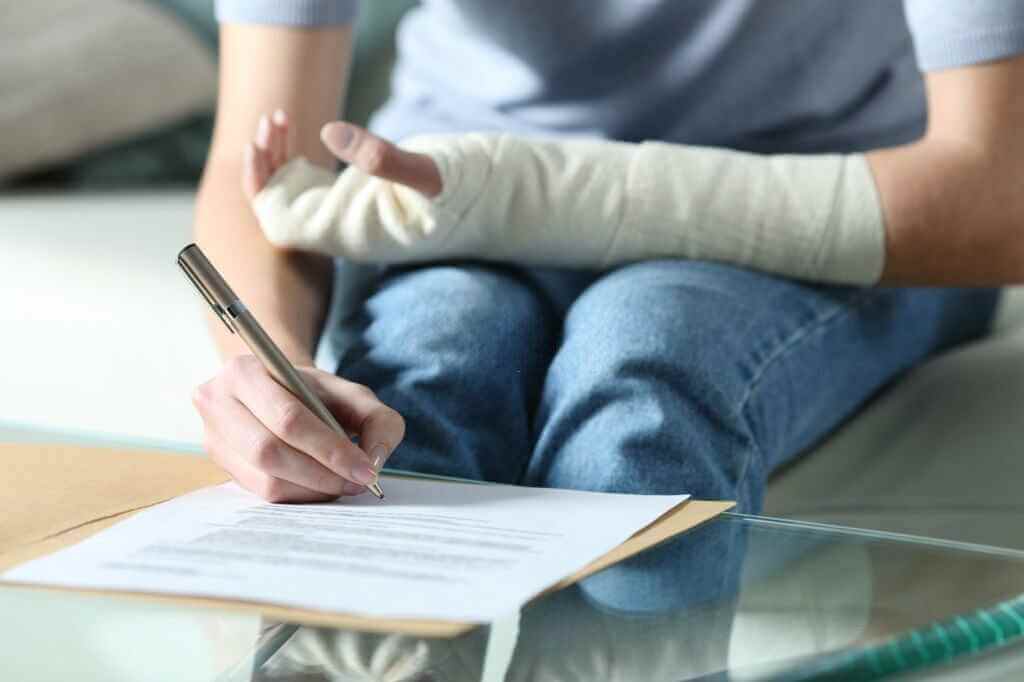Experiencing an injury can be traumatic, but it doesn’t mean that you will not be able to handle its aftermath well. Whether it’s from a car accident, a slip and fall accident, or any other type of injuries sustained outside of work, taking the right steps is important for your well-being. If you’ve ever wondered if you can get fired for being injured outside of work, don’t worry.
In this article, we will explain how you can safeguard your health and legal rights. Here’s what you need to do after an accident outside of work:
Contents
1. Seek Immediate Medical Attention
If you get injured outside of work, don’t think twice and just get yourself to the doctor right away. Your injuries can worsen if left untreated. Even seemingly minor injuries may have underlying complications that only a doctor can identify. If an injury happens at work, it’s easier to figure out how you can deal with getting compensation.
But, your priority after the accident is to prevent further damage, reduce pain, and expedite your healing process. Remember to provide the doctor with a detailed account of how the injury occurred and any symptoms you’re experiencing. By prioritizing your health and seeking immediate medical attention, you’re taking the necessary steps toward a speedy recovery.
2. Document The Incident And Gather Evidence
While it can be hard, you have to document the incident and gather all available evidence. This documentation plays a vital role if you decide to pursue a personal injury claim. Start by writing down all the details of the incident, including the date, time, and location. Be as specific as possible when describing what happened and how you got injured.
Take photographs of the scene and your injuries if possible. Collect any relevant documents such as medical records, witness statements, or police reports. Keep all these records organized and in a safe place. The more evidence you have, the stronger your case will be when seeking justice for your injuries.
3. Report The Injury To The Relevant Authorities
In the aftermath of an injury, it is vital to promptly report it to the relevant authorities. This immediate action serves the dual purpose of ensuring justice is upheld and holding those responsible accountable for their actions. When an incident occurs, contact the appropriate authorities, such as the police or emergency services, depending on the severity of the injury.
Provide them with all the necessary details, including the date, time, and location of the incident, as well as any witnesses or evidence you’ve gathered. Reporting the injury not only helps initiate an official record of the incident but also increases the chances of receiving the necessary support and compensation for your injuries. Time is of the essence when reporting, so don’t delay in informing the authorities about what happened.
4. Consult With An Attorney
For best guidance and support, consult with an attorney. Legal advice and representation are invaluable when seeking compensation for your injuries. An attorney will help you understand your rights and options, and the potential routes you can take to secure the compensation you deserve. They will also handle communication with insurance companies. Insurance adjusters possess tactics designed to minimize payouts, and an attorney’s experience is crucial in countering these strategies.
They become your voice in negotiations, ensuring that the settlement reached truly reflects the extent of your damages. Remember, it’s illegal for your employer to fire you because you got injured in or outside of work. An attorney can represent you in a court of law should the need arise. By retaining the services of an attorney, you not only protect your rights but also significantly increase your chances of obtaining the rightful compensation for your injuries and any related damages.
5. Follow The Recommended Treatment And Rehabilitation Plan
Make sure you stick to the recommended treatment and rehabilitation plan to maximize your chances of a full recovery and getting the compensation you deserve. Medical professionals design these plans to address your injury and promote healing. Skipping any part of the plan can hinder your progress and potentially harm your legal case.
The treatment and rehabilitation plan may include physical therapy, medication, rest, or other interventions tailored to your injury. By adhering to the plan, you demonstrate your commitment to your recovery and your intent to regain your health. Prioritize to follow the recommended treatment and rehabilitation plan to give yourself the best chance at a successful recovery.
Conclusion
When injuries occur outside of the workplace, the steps you take immediately afterward can significantly affect your recovery and your chance of getting justice.
By following these essential steps, you protect your health, rights, and future well-being, ultimately ensuring that the aftermath of an injury outside of work is met with care, attention, and diligence.




